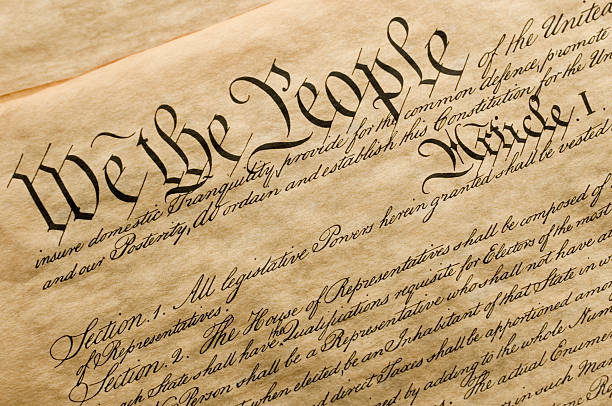W.J. Astore
Politicians are known liars; military officers are supposed to put integrity first
Newly elected Congressman George Santos of New York has become the butt of many jokes about his serial lying. Santos lied about pretty much everything: his education, his religion, his parents, his work background. It’s hard to say what he didn’t lie about. So far, he has survived because the Republican Party has stood behind him but also because Americans collectively expect politicians to lie. Another lying politician? Say it ain’t so, Joe!
George Santos is a symptom of a much larger disease: a lack of honor, a lack of shame, in America. Honor, truth, integrity, simply don’t seem to matter, or matter much, in America today. What matters is making money, getting ahead, gaining power, at any price. Rarely are liars called to account, especially in politics, where everything is spin.
But how do you have a democracy where there is no truth?
As much as George Santos has been lampooned (here in a funny segment by Bill Maher), as many times as he’s been called on to quit, one group of Americans is never called to account for their lies: U.S. military leaders.

U.S. military leaders appeared before Congress to testify the Iraq War was being won. They appeared before Congress to testify the Afghan War was being won. They talked of “progress,” of corners being turned, of Iraqi and Afghan forces being successfully trained and ready to assume their duties as U.S. forces withdrew. As events showed, it was all spin. All lies.
Where is the accountability? The Congressional hearings? The calls for those military leaders to explain themselves?
Of course, it wasn’t just the U.S. military but other sectors of the U.S. government that lied. Peter Van Buren’s book, “We Meant Well,” documents the lies and exaggerated stories he was pressured to sell as a member of the State Department working with U.S. military units in Iraq. Going along with the lies got you promoted. Trying to tell the truth, as Van Buren did, earned him pariah status and got him forced into retirement at State after a tense fight with his superiors, up to and including Hillary Clinton.
The Afghan War papers, released by the Washington Post in 2019, revealed the systemic lying of U.S. military leaders about that war. Even as they spoke publicly of progress and corners being turned, these same leaders spoke privately of lack of progress and dead ends. It was exactly those “private” concerns that should have been made public.
As the Washington Post put it in 2019: A confidential trove of government documents obtained by The Washington Post reveals that senior U.S. officials failed to tell the truth about the war in Afghanistan throughout the 18-year campaign, making rosy pronouncements they knew to be false and hiding unmistakable evidence the war had become unwinnable.
Prolonging wars based on lies is far more serious than the headline-grabbing sins of Santos. U.S. troops paid for these lies with their lives, as did the peoples of Afghanistan, Iraq, and elsewhere. Again, where is the accountability in a U.S. military that allegedly prides itself on its integrity?
In fact, there were officers with integrity, like Matthew Hoh, who served in the Marine Corps before he joined the State Department. Hoh resigned from State in 2009 because he knew plans to “surge” in Afghanistan were wrongheaded and that reports of progress were false. Privately, his superiors agreed with most of his critique. Publicly, they continued to speak of victory being in sight, just as their predecessors had done during the Vietnam War.
Indeed, Hoh’s honesty and courage created a rare opportunity for then-President Barack Obama. Obama could have latched on to Hoh’s honest critique and used it to modify his own initial misreading of the Afghan War as the “good” war (as opposed to the “bad” Iraq War under Bush/Cheney). But Obama continued on course to military escalation in Afghanistan, a surge that produced nothing except more death and destruction. A dozen years later, U.S. forces finally withdrew from that country, chaotically and ignominiously.
Ironically, Members of Congress often know that senior military leaders are lying to them, but they refuse to act, notes Matt Hoh, mainly because they’re concerned to protect their political careers. In the case of the “surge” in Afghanistan, Democrats lined up to support Obama in part because they wanted no distractions as the president fought to get the Affordable Care Act passed into law.
So, the generals lie and Congress goes along with them, whether for profit, political expediency, and similar reasons, which only highlights further the rot throughout the military-industrial-congressional complex. In short, rather then challenging the lies, Congress is complicit in them.
Today, Republicans in the House want to investigate the 2021 withdrawal from Afghanistan, which is good, except their motivation is purely partisan. They want to attack the Biden administration, to paint it as weak and inept, when the real focus should be on all the lies, blunders, and profiteering by the military-industrial complex throughout the Afghan War.
A mendacious military is a very dangerous thing—far more dangerous than run-of-the-mill politicians like Santos with Pinocchio syndrome. Lies in military settings are matters of life and death. This is precisely why integrity is allegedly so highly valued, why honor is allegedly so highly esteemed, in the U.S. military.
It’s high time for real, honest, Congressional truth hearings on America’s disastrous wars. Just don’t appoint Santos and his ilk to serve on the committee.






